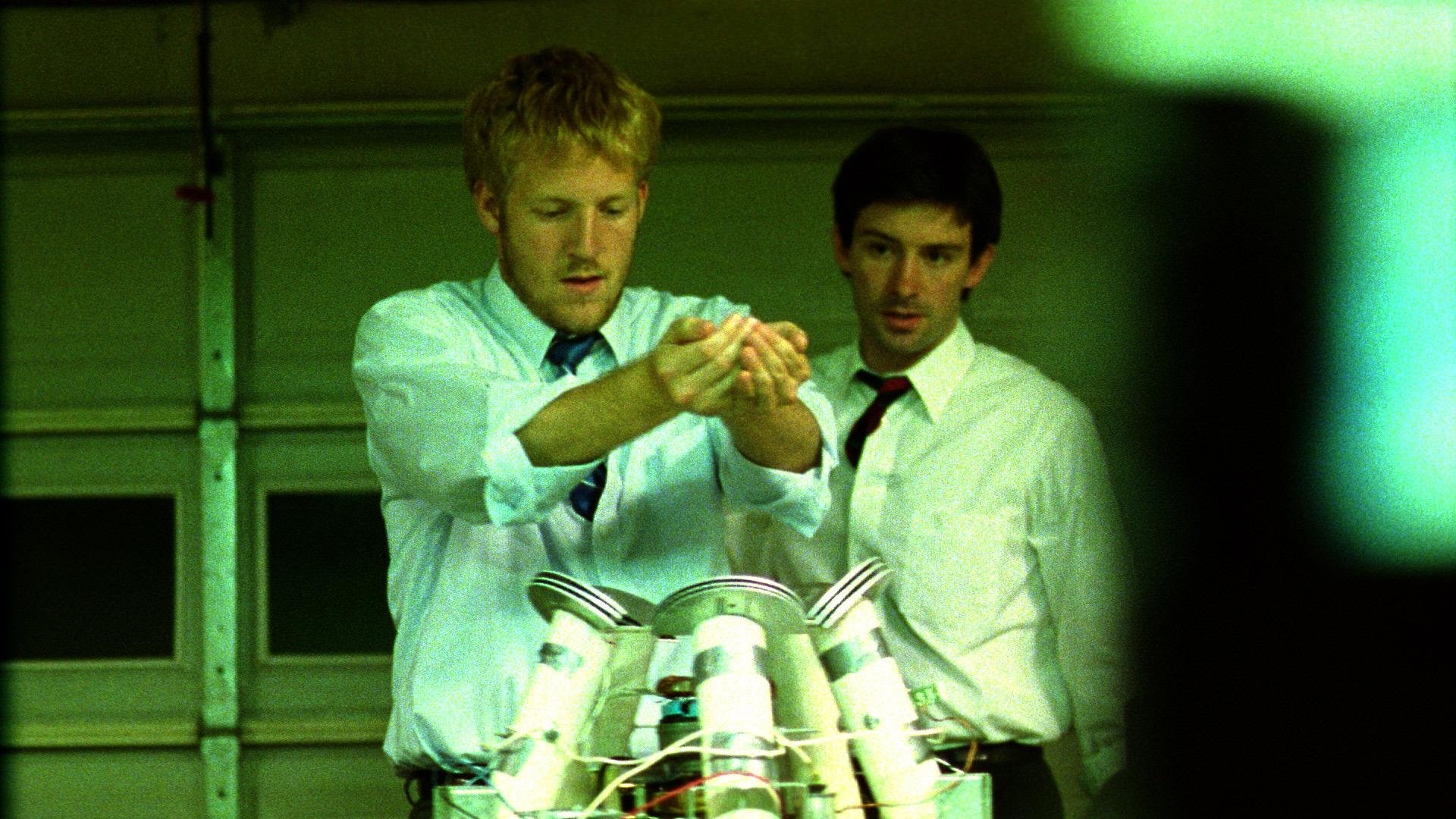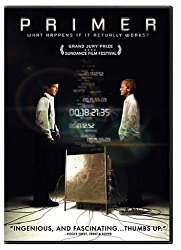It's a movie. It's about time travel. Imagine Steve Jobs and Steve Wozniak built a time machine instead of the Apple computer in their garage. That's Primer.

It's a very subtlety written movie. There's absolutely no exposition. Or, perhaps it's more accurate to say the exposition is naturally incorporated into the dialog.
As a low budget film, costing $7,000 to shoot, it may not be entertaining to people who like eye-candy. But to me, that's a positive.
The movie properly presents time travel. Specifically, it tries to properly handle the problem of the temporal paradox.
If you've ever seen a Star Trek episode about time travel, you may have noticed that most temporal paradox is often ignored. They hint at them, sometimes joke about them, hang a lantern on them from time to time, but they never really let them get in the way of telling the story.
In the case of Primer, the paradox all boils down to this: Are you sure that's how cell phones work?
Well, that's my theory. Maybe that's not all there is to it, but it's a plot point that may explain the paradox. Maybe everything goes wrong because they broke symmetry. Or maybe it wasn't the real root cause. Maybe you just break symmetry as a natural outcome of thermal dynamics. The point is, the writer does not specifically tell us why the paradox happened, and to me, that is the correct way to present a paradox in time travel.

